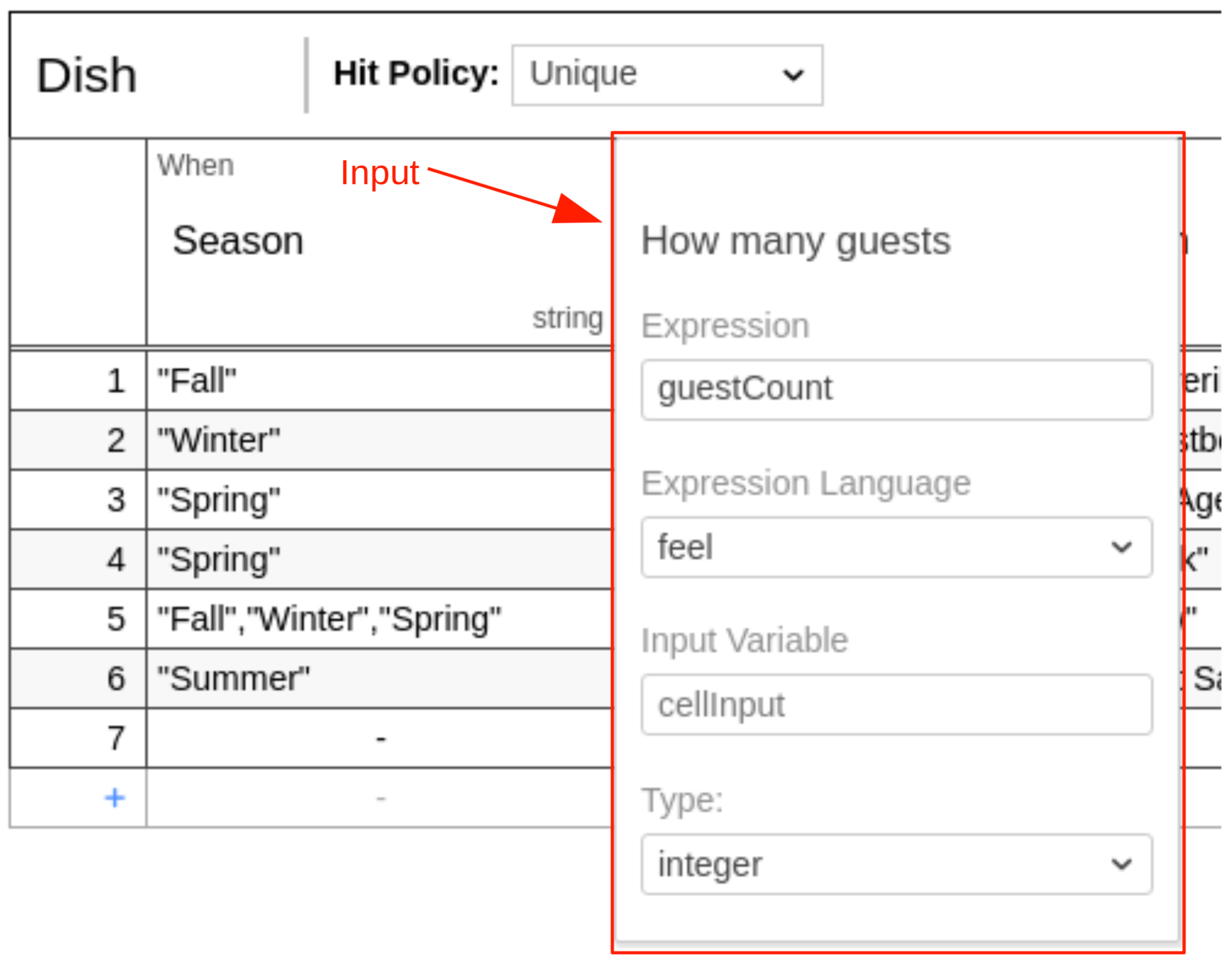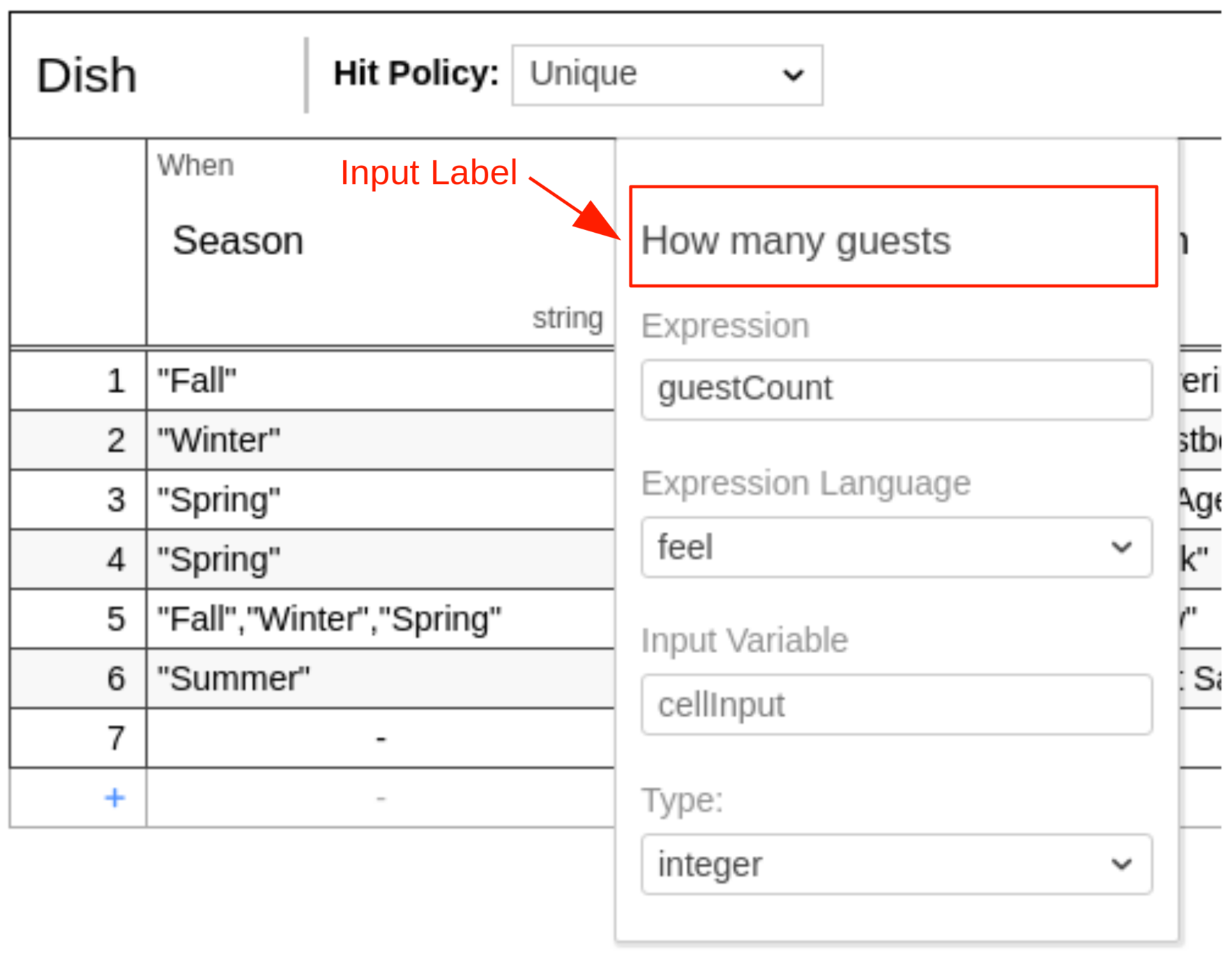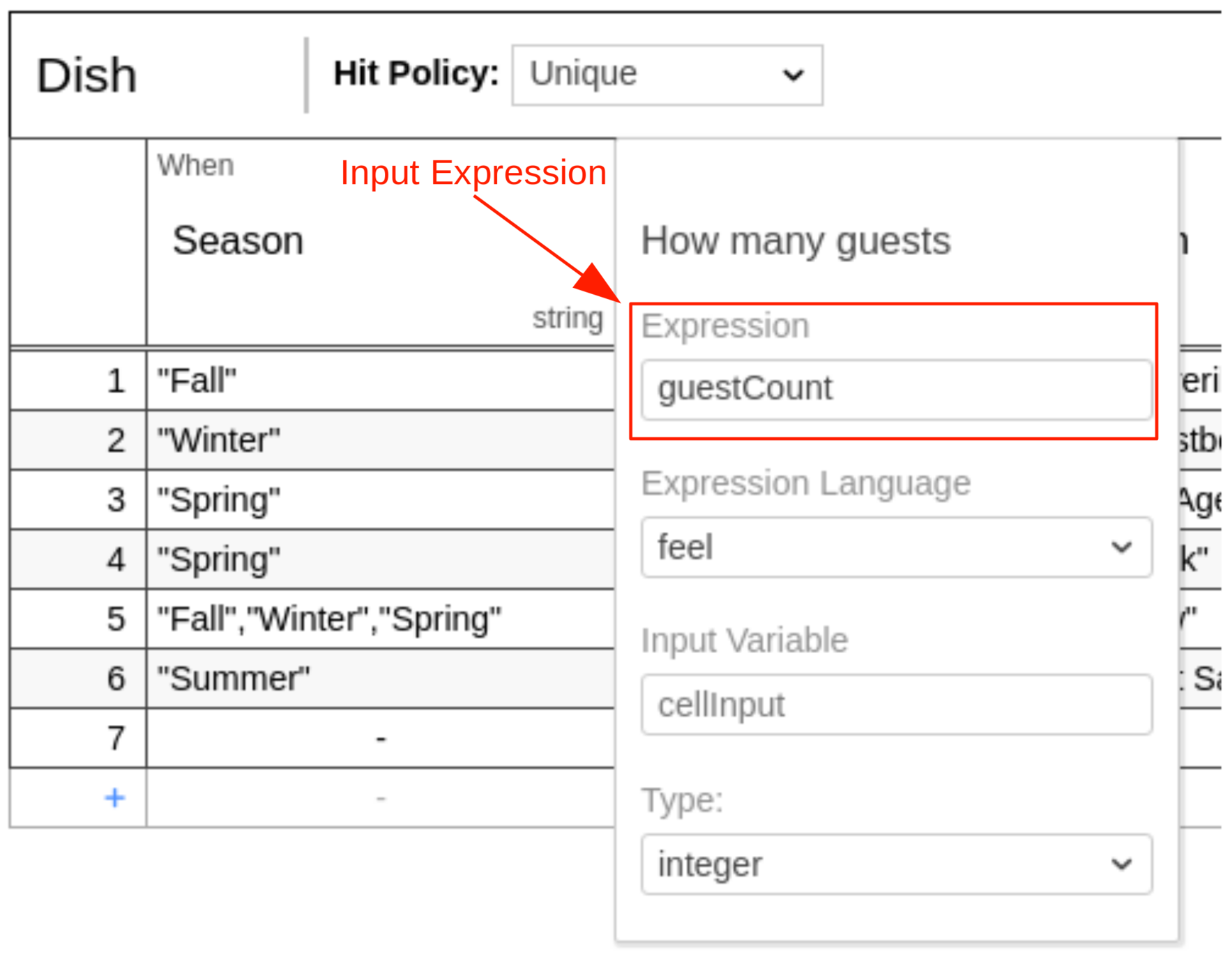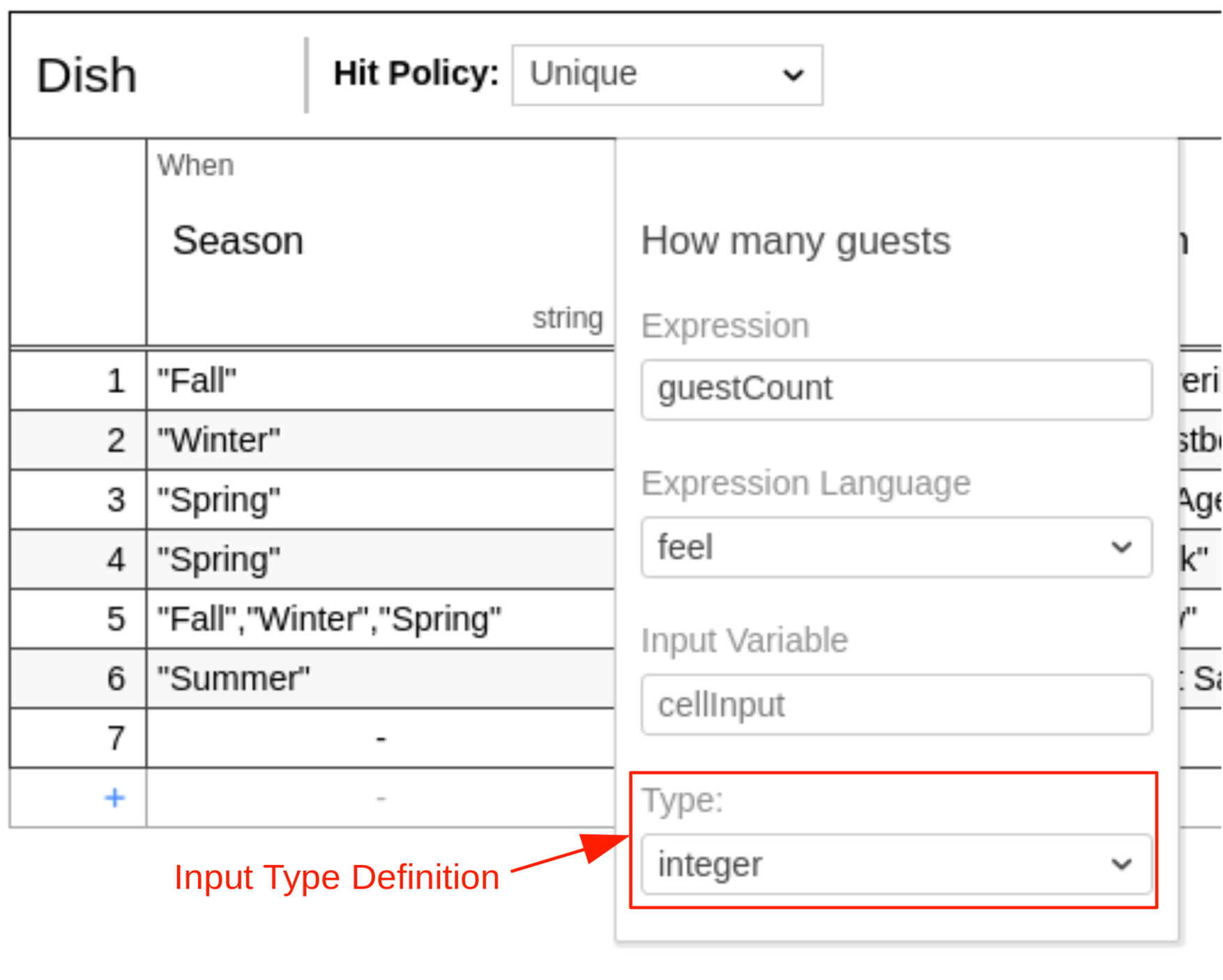Input

A decision table can have one or more inputs, also called input clauses. An input clause defines the id, label, expression and type of a decision table input.
An input can be edited by double-clicking on the respective colum header in the decision table.
An input clause is represented by an input element inside a decisionTable
XML element.
<definitions xmlns="https://www.omg.org/spec/DMN/20191111/MODEL/" id="definitions" name="definitions"
namespace="http://camunda.org/schema/1.0/dmn">
<decision id="dish" name="Dish">
<decisionTable id="decisionTable">
<input id="input1" label="Season">
<inputExpression id="inputExpression1" typeRef="string">
<text>season</text>
</inputExpression>
</input>
<!-- ... -->
</decisionTable>
</decision>
</definitions>
Input id
The input id is a unique identifier of the decision table input. It is used by Camunda to reference the
input clause. Therefore, it is required. It is set as the id attribute of the input XML element.
<input id="input1" label="Season">
<inputExpression id="inputExpression1" typeRef="string">
<text>season</text>
</inputExpression>
</input>
Input label

An input label is a short description of the input. It is set on the input
XML element in the label attribute. Note that the label is not required but recommended, since it helps to understand
the decision.
<input id="input1" label="Season">
<inputExpression id="inputExpression1" typeRef="string">
<text>season</text>
</inputExpression>
</input>
Input expression

An input expression specifies how the value of the input clause is generated. It is usually simple and references a variable which is available during the evaluation.
The expression language of the input expression is FEEL.
The expression is set inside a text element that is a child of the
inputExpression XML element.
<input id="input1" label="Season">
<inputExpression id="inputExpression1" typeRef="string">
<text>season</text>
</inputExpression>
</input>
Input type definition

The type of the input clause can be specified by the typeRef attribute on the
inputExpression XML element.
After the input expression is evaluated, it checks if the result converts to the specified type. The type should be one of the supported data types.
<input id="input1" label="Season">
<inputExpression id="inputExpression1" typeRef="string">
<text>season</text>
</inputExpression>
</input>
Note that the type is not required but recommended, since it helps to understand the possible input values and provides a type safety to be aware of unexpected input values.